Newman’s great gift to education is really his vision of “the college” — a particular embodiment of the grand idea of “the university”
By William Edmund Fahey
President, Thomas More College of Liberal Arts, New Hampshire, USA
Never in the field of education have so many praised a man so much after reading him so little. That comment is not a criticism of St. John Henry Newman, but an unfortunate truth about higher education. Most educators—Catholic and non-Catholic—know that they should have read Newman and most know that his Idea of the University is considered important, but few have actually spent the time struggling with Newman’s essays, other books, and sermons, and fewer still have gone to the heart of his educational philosophy, which lies outside of the Idea.
I suspect that I may be part of the last generation of undergraduates who were required to read The Idea of the University, or at least parts of it. I can still remember a wet autumn day when we cracked open our new editions of the Idea. We had been told to leap forward and race to the heights of Victorian prose. So, we did. It was dreadfully hard going. Like many young Catholic readers, I was inspired by Newman’s vision of a gentleman and tried not “to cause a jar or jolt in the minds of those with whom” I was “cast.” But that made seminars rather difficult—after all, weren’t we supposed to spar and knock down our intellectual opponents? I did my best and, though I couldn’t always see how we were to apply Newman’s moving essays to our own lives, I was inspired, especially by his vision of a synthesizing mind which had the capacity for seeing the interrelationship of parts; this was the object of a good education: a steady vision. As Newman would say, “That only is true enlargement of mind which is the power of viewing many things at once as one whole, of referring them severally to their true place in the universal system, of understanding their respective values, and determining their mutual dependence.” Much later, with minds far wiser than mine, I would participate in the creation of collegiate educational standards inspired by and named after Newman’s “True Enlargement of Mind.” These remain the guiding principles of Thomas More College of Liberal Arts.
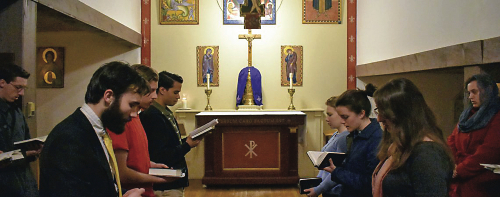
A moment of common prayer, and, below, an outdoor drawing class
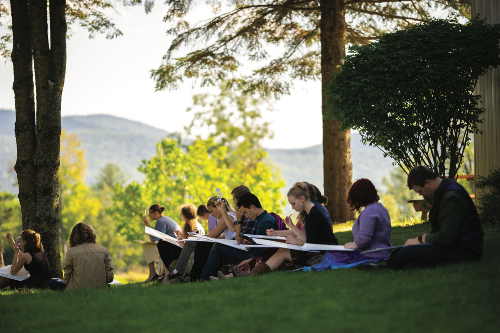
I suspect that my old teachers, like most educators, doled out Newman’s Idea because it was readily in print again (thanks to Notre Dame’s Walter Nicgorski) and because it was the Catholic text deemed acceptable by the secular academy. Yet this was a problem. As I trod along my own educational path, I soon encountered the difficulty of reading only the Idea. I regularly met Catholics and non-Catholics, who turned to Discourse Five —“Knowledge Its Own End” — or simply cited Newman’s opening remark that the object of university studies is “intellectual, not moral,” and used the words as a battering ram to tear down any remains of a program which linked education with moral formation.
To this day, teachers and, especially, administrators praise with lofty words Newman’s Idea of the University, but they know little beyond slogans about Newman, and his ideas are twisted down into little more than a liberal understanding of academic freedom. His grand educational project was just that — grand. And, in fairness, perhaps it is hard — for an administrator pressed for time or a teacher without the habit of study — even to attempt to grasp Newman’s educational vision in its integrity. It occupied nearly the whole of his life, growing out of a deadly duel in Europe over whether the German research university would bury all other forms of education or not. Newman, before and after conversion, was a stalwart defender of the British collegiate system. He defended the smaller, intimate and character-focused colleges of Oxford against the rising Universität, not for nostalgic reasons, but because he was a close reader and disciple of Aristotle, and because he viewed education as a whole as concerned chiefly with the human person, and chiefly with a student’s formation in virtue so that he could have a tolerable chance at happiness in later life.
The Idea of the University has multiple audiences — the original lectures were aimed at the Irish and English professional and educated public. Newman wanted to allay suspicions about the newly proposed Catholic University in Ireland and to prepare the Irish — so long deprived of vigorous institutional paths towards education — with a vision that was broad and generous. Newman himself never viewed the Idea as we do. It was merely one work of many. What Newman spent more time in crafting, and what reflected much more Newman’s experience and practice of education, is found in a work published simultaneously with the Idea: it was The Office and Work of Universities (1856). This work makes clear what is less obvious in the Idea. The Idea of a University was just that — an idea, a study of a thing in general. It was not and is not the study of a Catholic University, and certainly not the study of any particular educational system.
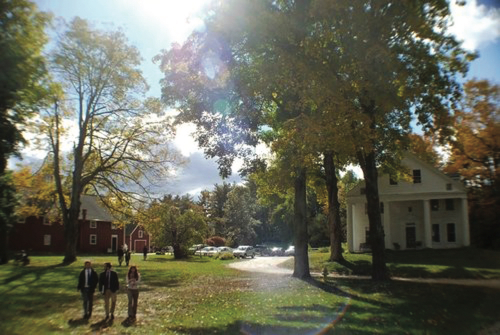
What the Idea does not treat is precisely that which could give education, in Newman’s words, its “well-being” and its “integrity.”
What was missing from the Idea was “the College.” And this, I would argue, is Newman’s great gift to education: his vision of the college. As he put it, a college is the “corrective” of the university, because in the small residential system of education there is “virtuous and paternal discipline.”
For the undergraduate, the college “is all and does all,” teaching and forming by “careful individual trial.” It is the locus of virtue formation and is so because of what is possible when the scale is small.
Only with a college can one say there is a community.
A university, Newman several times says, is really a kind of city, and a city a kind of university; it provides the stimulating background for human formation, but cannot give it.
Newman’s own life and career were lived in such little communities — in Oxford and Dublin especially. Newman viewed it as abhorrent and an “abdication” of the educator’s vocation to avoid “the science” of making humans, a project sustainable only within a small residential community dedicated to virtue.
We would do well to follow Newman (as he followed Aristotle) and learn not merely his expressions, but his questions, his way of thinking, and especially his way of living. Newman’s greatest gift to Catholic education is that the idea of the university can only find its integrity and realize its purpose when we come down from the lofty heights of ideas and recall the lively, curious, but inexperienced creature called a student and tend carefully to his intellectual and moral needs. This is best done when, like Newman, teachers and administrators remember passages such as this and place them side by side with Discourse Five: “I wish the same spots and the same individuals to be at once oracles of philosophy and shrines of devotion… I want the same roof to contain both the intellectual and the moral discipline.” Newman’s educational vision reveals a program of vigorous intellectual stimulation with students and teachers living a common life in a small, familial setting.
That is, it reveals a college where faith and reason are not balanced one against another in tension, but enriching one another because student, teacher, and staff are all committed to pursuing holiness and virtue with ardor equal to their pursuit of wisdom, knowledge, and technical expertise.
Without the college, Catholic education is merely an idea.
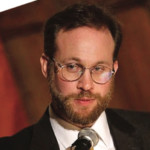 Dr. William Edmund Fahey, Ph.D., was educated in the United States and Scotland. He founded the Department of Classical & Early Christian Studies at Christendom College in Front Royal, Virginia. He is a Fellow of Thomas More College of Liberal Arts (New England and Rome), where he currently serves as its third President.
Dr. William Edmund Fahey, Ph.D., was educated in the United States and Scotland. He founded the Department of Classical & Early Christian Studies at Christendom College in Front Royal, Virginia. He is a Fellow of Thomas More College of Liberal Arts (New England and Rome), where he currently serves as its third President.



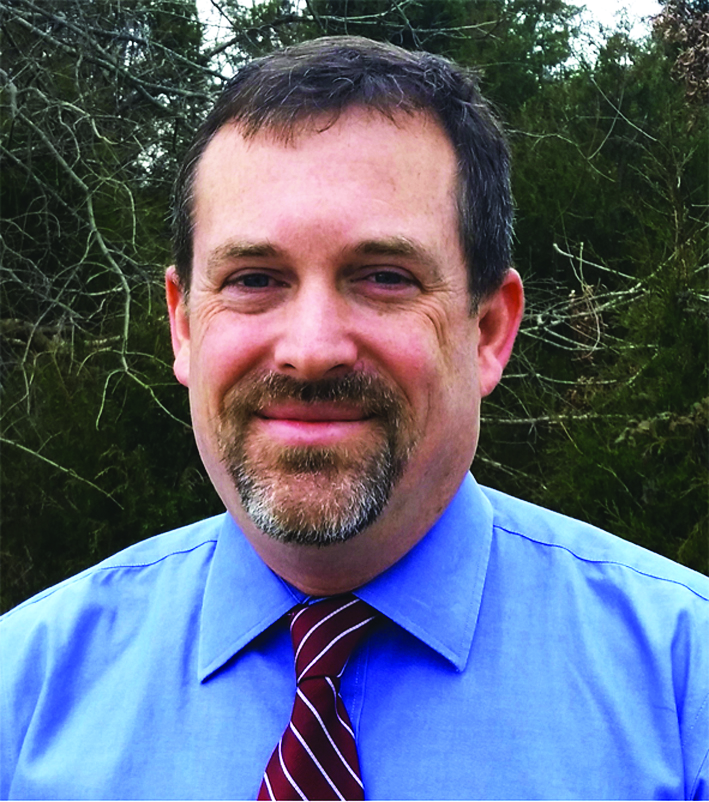
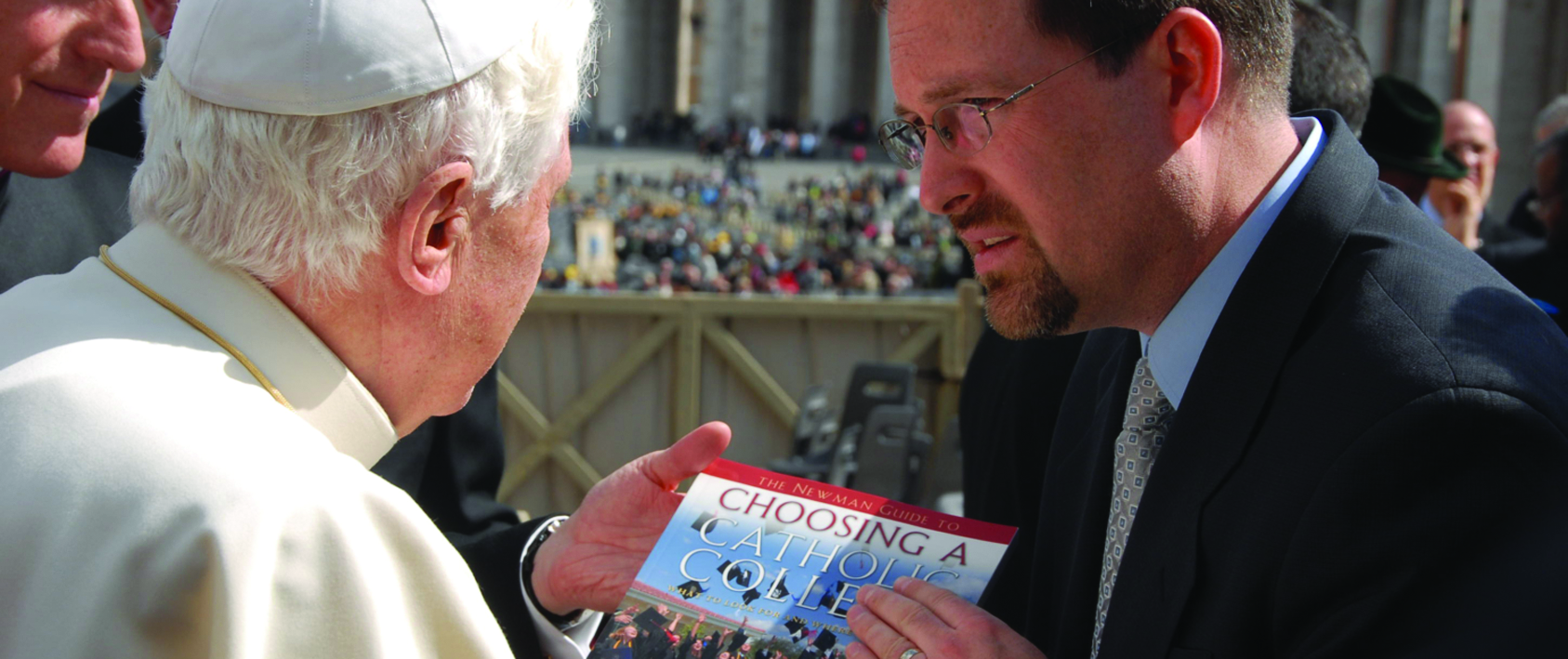
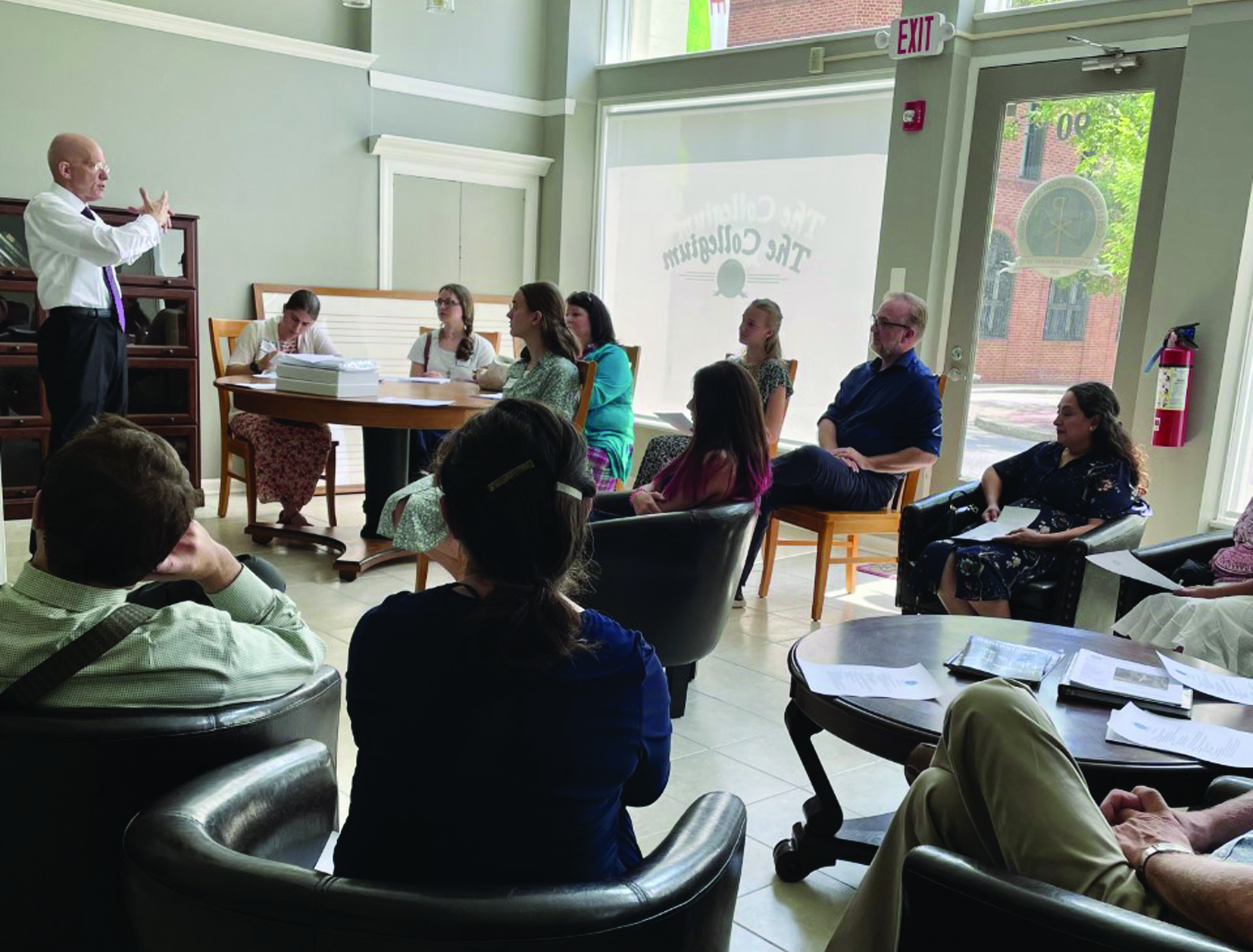
Facebook Comments